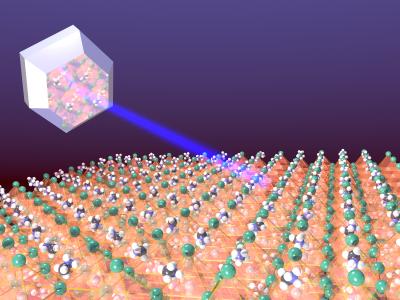Researchers working with perovskite materials have made a discovery that could lead to much higher voltage solar cells. The team discovered a tin-based perovskite, in which ‘hot’ electrons retain their energy for much longer than seen in similar materials, which increases the possibility of developing a method to harvest this energy, which is most often lost as heat.
When photon particles have higher energy than the band gap of the solar cell material, so called ‘hot electrons’ are created, and the extra energy relative to the bandgap very quickly dissipates as heat, not contributing to the voltage in the cell. In their research paper, published in the journal Nature Communications, the team describes a tin-based perovskite material, in which hot electrons lose their energy much more slowly, making it potentially easier to capture.
The University of Groningen had previously published research detailing a perovskite material that replaced toxic lead with tin, and later observed the hot electron phenomenon in this same material. “When we studied this material further, we observed something strange,” says Maria Antonietta Loi, Professor of Photophysics and Optoelectronics at University of Groningen. “'The hot electrons gave off their energy after several nanoseconds instead of some hundred femtoseconds.”
This longer energy lifespan could create the possibility for the energy to be harvested before it turns into heat. According to Loi, theoretical calculations show that harvesting energy from the hot electrons could increase the maximum efficiency for hybrid perovskite solar cells to as much as 66%.
Having discovered this effect, the team must now work to ascertain why and how their tin-based perovskite slows down the decay of hot electrons. This, they say, would allow for even slower electrons, and even higher cell efficiencies.
This content is protected by copyright and may not be reused. If you want to cooperate with us and would like to reuse some of our content, please contact: editors@pv-magazine.com.




By submitting this form you agree to pv magazine using your data for the purposes of publishing your comment.
Your personal data will only be disclosed or otherwise transmitted to third parties for the purposes of spam filtering or if this is necessary for technical maintenance of the website. Any other transfer to third parties will not take place unless this is justified on the basis of applicable data protection regulations or if pv magazine is legally obliged to do so.
You may revoke this consent at any time with effect for the future, in which case your personal data will be deleted immediately. Otherwise, your data will be deleted if pv magazine has processed your request or the purpose of data storage is fulfilled.
Further information on data privacy can be found in our Data Protection Policy.